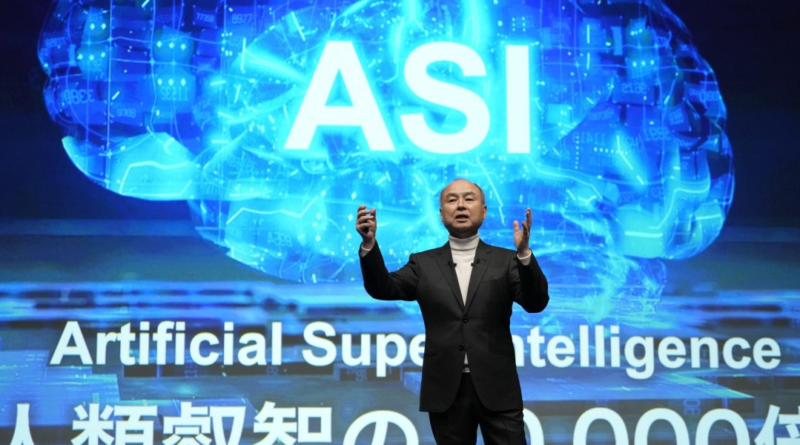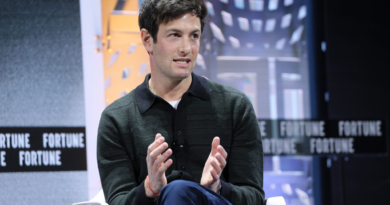SoftBank’s billionaire CEO says he was put on Earth to create artificial super intelligence that’s 10,000 times smarter than a human—’I am super serious about it’
SoftBank’s billionaire CEO Masayoshi Son is known for being quite the character. The eccentric Japanese investor—who began his career by starting a video game company that he later sold to electronics giant Kyocera—has made a name for himself investing billions in trendy startups that have the potential to change the world.
Sometimes, like in the case of the Chinese e-commerce giant Alibaba, this strategy leads to monumental returns and praise from investors, but other times, it ends in tragedy and tears (literally). Son described in 2019 how his multibillion-dollar miss on the coworking giant WeWork left him in agony, but he promised to learn from the “very harsh lesson.”
SoftBank’s performance in recent years has perfectly epitomized Son’s hit-or-miss track record and penchant for drama, however. The multinational holding company’s flagship Vision Fund posted a then-record $27 billion loss in its fiscal year 2021, which ended on March 31, 2022, as many of its high-growth and tech stocks were hammered by the threat of rising interest rates, leading Masayoshi Son to go into what he called “defense” mode.
That tactic didn’t prove helpful in SoftBank’s fiscal year 2022, which ended on March 31, 2023, however. The Vision Fund posted another record $32 billion loss after big misses on the Chinese AI company SenseTime and the Indonesian ride-hailing and e-commerce giant GoTo weighed on results. This time, the poor performance led the always unconventional Son to say he was going back to “offense.”
So far, that old-made-new tactic has worked: SoftBank’s flagship fund managed to rake in $4.6 billion after the success of some of its more high-profile investments, including the U.K. chip designer Arm, TikTok owner ByteDance, and the food-delivery company DoorDash, in its fiscal year 2023, which ended on March 31, 2024.
But now, after facing stumbling blocks, admitting his mistakes, promising to learn from them, and coming out on the other side with a profit, Son has turned to a new obsession: artificial superintelligence (ASI).
Forget AI, or even the “holy grail” of artificial general intelligence that’s supposed to be smarter than the average human: Softbank’s CEO foresees a future dominated by ASIs that are 10,000 times smarter than even the most intelligent person on the planet. Moreover, the billionaire said, he believes he was put on Earth to make this future a reality.
“SoftBank was founded for what purpose? For what purpose was Masa Son born? It may sound strange, but I think I was born to realize ASI. I am super serious about it,” Son told shareholders at an annual meeting last week, per CNBC.
The billionaire argued that every investment he’s made throughout his career, from Uber to Alibaba, was all just a “warm-up” for his AI investments. “Realizing ASI is my only focus,” he said, the Financial Times first reported.
This extreme AI focus follows SoftBank’s promise to make five separate large-scale AI investments of at least $1 billion in May. Son had already backed multiple AI companies before the announcement—including his $200 million into Tempus AI, a medical-data analysis startup in April—but now the pace seems to have picked up.
SoftBank’s latest bet came just this week, when it backed the trendy AI internet search startup Perplexity AI, which hopes to compete with the likes of Google, at a $3 billion valuation, per Bloomberg.
In his meeting with shareholders last week, Son also highlighted opportunities in autonomous driving, AI robotics, data centers, and more that he will be looking into moving forward. In his typical style, the billionaire then launched into a heartfelt, introspective discussion of his investing life.
“Two years ago, I am getting old, rest of my life is limited, but I haven’t done anything yet and I cried so hard,” he said, recounting how he felt during the dark period for SoftBank in 2022.
Now, Son said he’s more clear on his purpose than ever. “This is what I was born to do, to realize ASI,” he emphasized.



